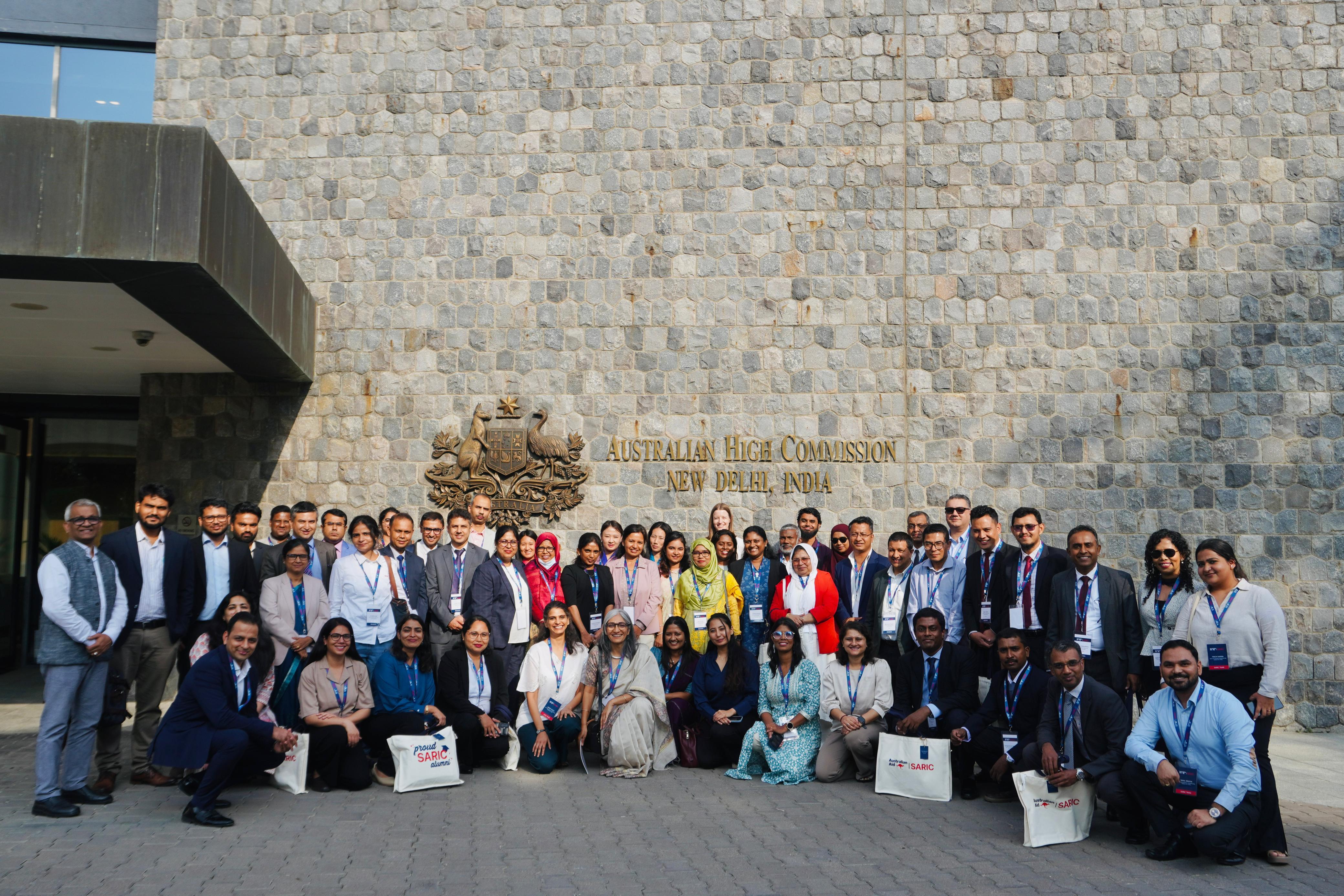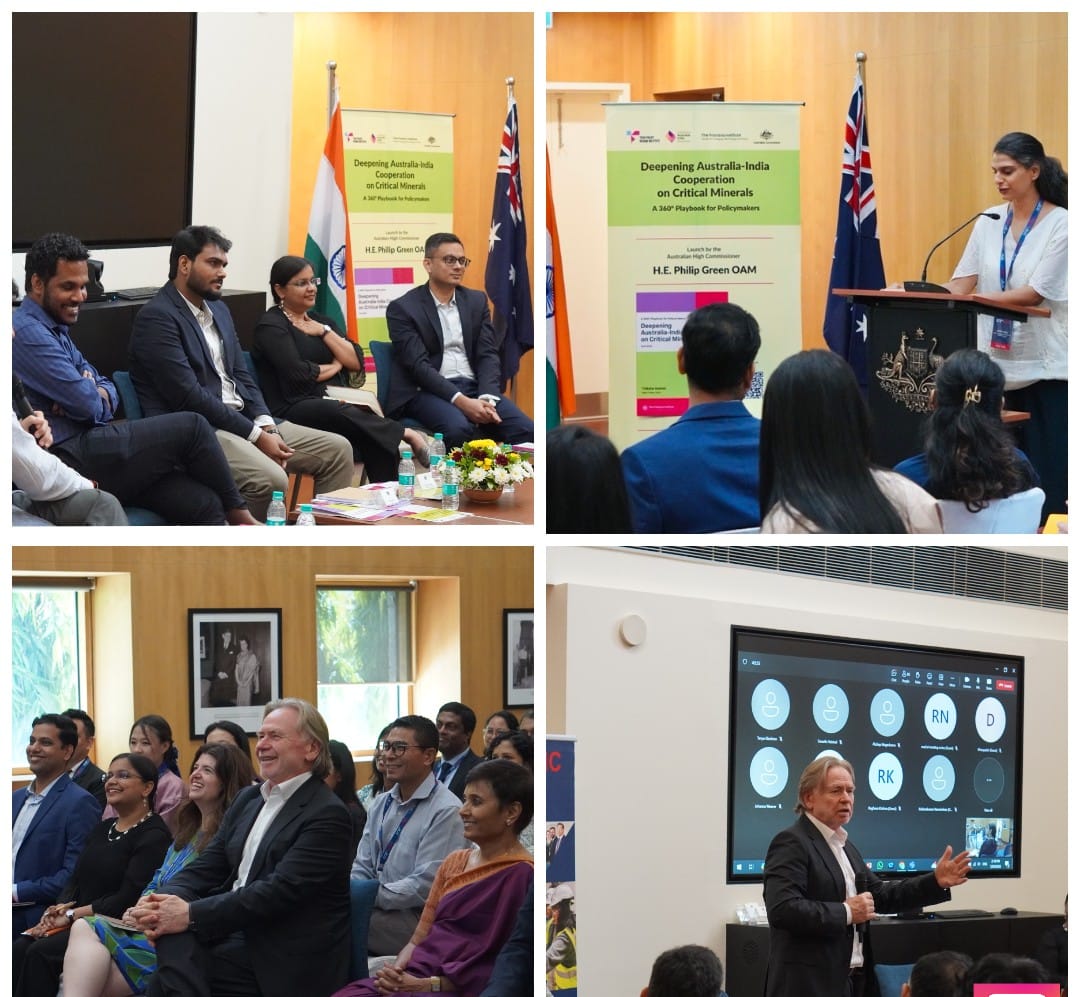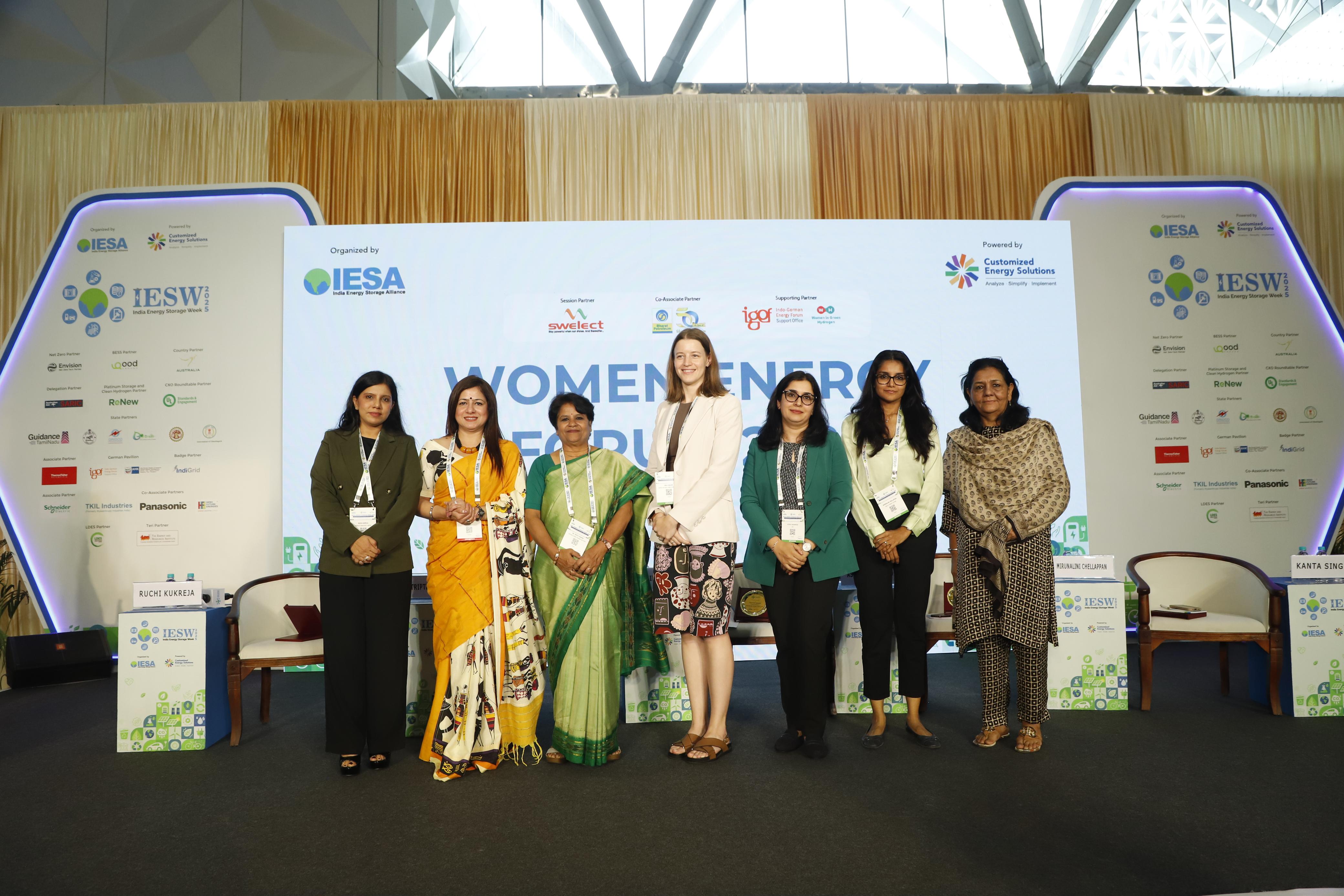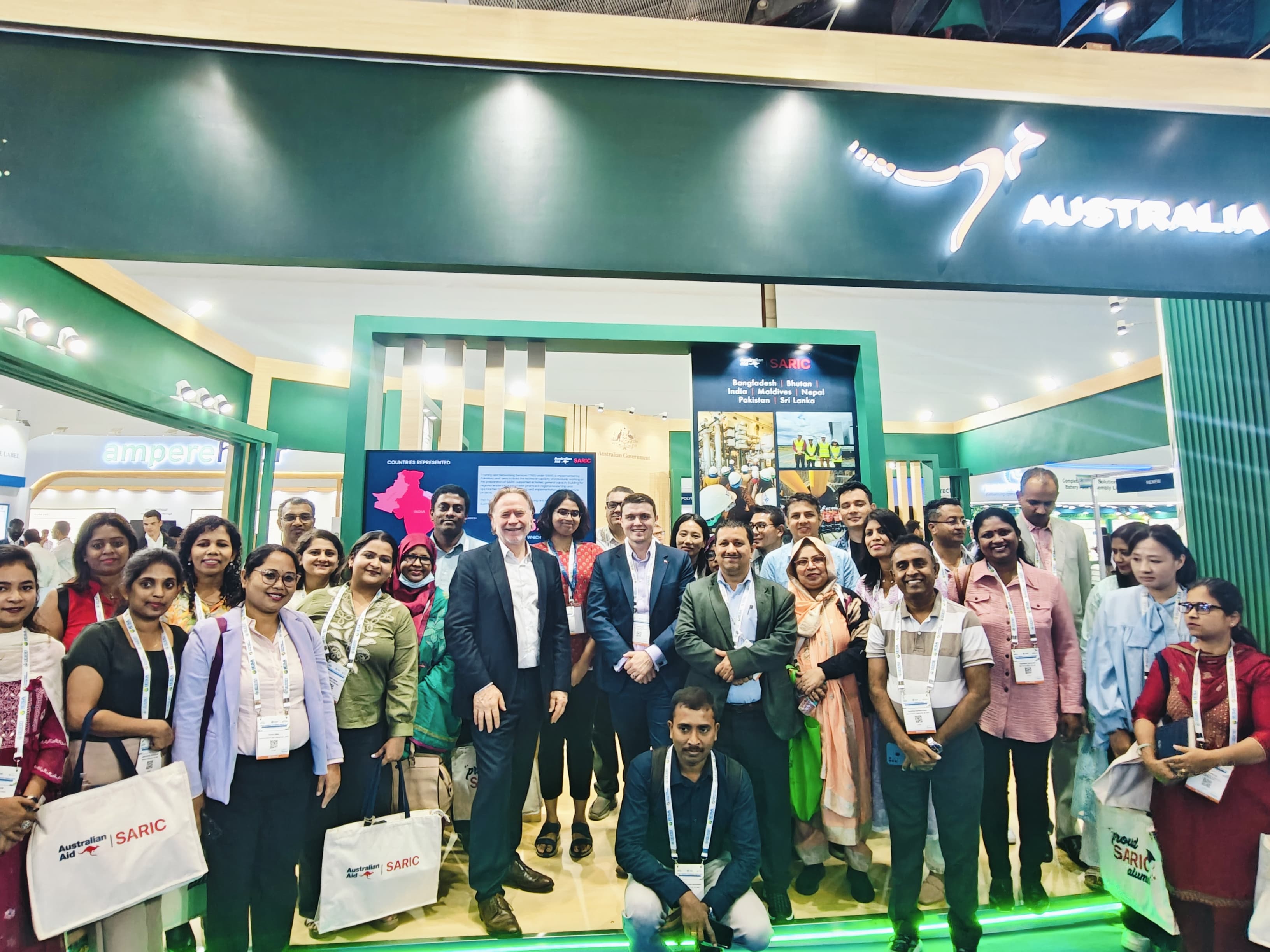The Alumni Meet began in New Delhi with the SARIC Clean Power Dialogue: Lessons, Levers, Pathways to a High Renewable Grid, at the Australian High Commission with Centre for Social and Economic Progress as the knowledge partner. His Excellency Phillip Green OAM opened the dialogue by emphasizing the Indo-Pacific’s clean energy transition as key to regional prosperity. He stressed the need for decisive investment, regional collaboration, and alignment of mineral and clean-tech strategies to accelerate growth. High Commissioner Green’s remarks were followed by the launch of a new report on India–Australia Critical Minerals Cooperation authored by Titiksha Vashist – the study was produced under the Maitri Fellowship Program of DFAT.
The Clean Power Dialogue featured two sessions. The first explored what transitioning to a high-renewable energy grid looks like, calling for parallel investment in infrastructure and workforce development, future labor mapping, certification pathways, and inclusive training for communities.
SARIC hosted its first Regional Alumni Meet in New Delhi from 7-10 July, bringing together 40 energy sector alumni from Bangladesh, Bhutan, India, Nepal and Sri Lanka. The Regional Meet was also attended by Maldives alumni from the Australia Awards South Asia and Mongolia (AASAM) program to strengthen our efforts towards cross-program collaboration between DFAT funded programs in the region. The meet aimed to broaden regional perspectives, build a shared understanding of regional energy connectivity challenges & opportunities, offer fresh insights into South Asia’s evolving energy landscape and boost alumni networking.

The second session focused on actionable pathways or how to get there, highlighting the shift from goal setting to system transformation through integrated planning, market design, and financing mechanisms to deliver affordable and reliable renewable energy. Eminent voices from CSEP, NITI Aayog, SustCred, World Bank and International Finance Corporation contributed to the discussions.
Following SARIC’s panel sessions, Austrade hosted speed networking between the visiting Australia Clean Tech Delegation and SARIC alumni. Australian businesses pitched their innovative products and services to SARIC alumni from across South Asia, aiming to make in-roads into the region’s growing energy sector. This engagement showcased Australia’s commercial innovations and facilitated interaction for the South Asian cohort to build international partnerships for scaling up a cleaner, more collaborative energy future in South Asia.


Later in the week, SARIC participated as a Delegate Partner at the India Energy Storage Week (IESW 2025). IESW is a premier international platform for stakeholders across battery manufacturers, energy storage, e-mobility, battery recycling and green hydrogen. IESW boosts participation from over 50+ countries, 100+ regulators and policymakers, 200+ partners and exhibitors, 150+ speakers, and 10,000+ visitors every year. Our alumni gained exposure to market trends, innovations, and networking opportunities. SARIC alum, Biraj Singh Thapa, Professor at Kathmandu University, presented Nepal’s green hydrogen initiatives in the session “Foundations for R&D and Pilots for Green Hydrogen Projects”. Bhawana Choudhury, another alum participated in the roundtable discussion on “BESS Capacity Development: Challenges and Improvements”.
The Women in Energy Forum, hosted at IESW, brought together women leaders. Emily Megow, First Secretary (Development) Australian High Commission Delhi, and Dr Tripta Thakur, Director General, NPTI, presented an insightful overview of the SAR100 program during the session “Women Leading Innovation and Change in the Energy Sector,”. The session highlighted that women make up just 11% of India’s energy distribution workforce and less than 1% in leadership roles. Programs like SAR100, funded by the Australian Government under SARIC, are building capacities of mid-career women engineers to provide them with technical skills and mentorship ensuring their voices shape and lead the future energy transition.
Finally, SARIC hosted a heritage walk at the UNESCO World Heritage Site Qutub Minar followed by a team dinner for alumni to exchange reflections, share key takeaways, and explore how alumni-led networking platforms can drive meaningful collaborations in their countries.
